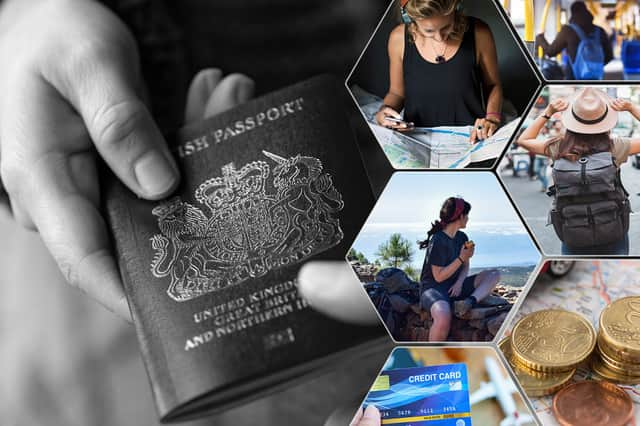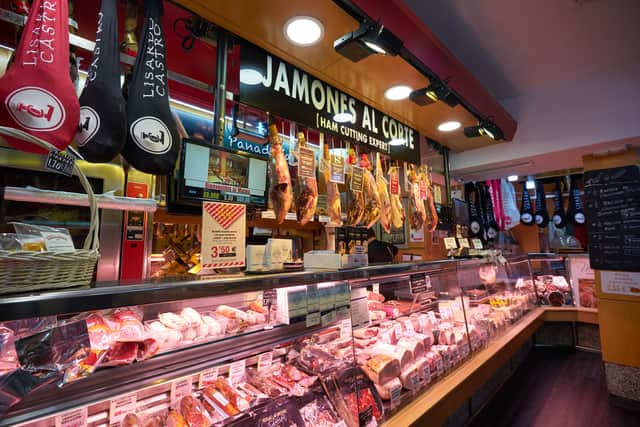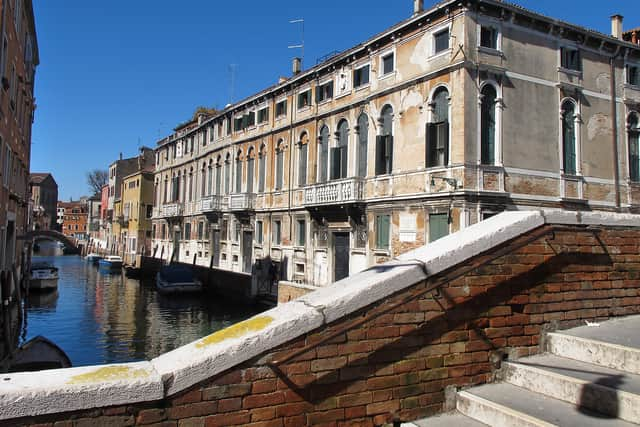32 easy ways to save money while planning holidays: from when and how to book, where to go, to cheap stays
This article contains affiliate links. We may earn a small commission on items purchased through this article, but that does not affect our editorial judgement.


Nobody needs any reminding of the difficulties the past few years have held, of course globally, but also specifically for those of us living in the UK. Many of us postponed or cancelled (and financially lost out) holidays during lockdowns, then jumped through necessary but often stressful and expensive bureaucratic hoops to get abroad as the world started to reopen. Back home, the cost of living crisis is putting a serious strain on household budgets (and the weather has, alas, not been great).
Nevertheless, demand for holidays has returned - with a vengeance in fact, people no doubt chomping at the bit for a spot of indulgence and exploration after a spell of involuntary deprivation. Concurrently, though, the cost of going on holidays has rising steeply - flight prices have risen precipitously from pre-pandemic rates according to multiple reports, as have car hire rates (not to mention petrol costs).
Advertisement
Hide AdAdvertisement
Hide AdWithout wanting to sound like a cosmetics advertising campaign, we understand deeply the desire to take a holiday, and believe that people deserve a fun, decent, restorative and stimulating break. So we've complied a list of money-saving techniques for booking jolly holidays both here and abroad. In an effort to be comprehensive, some of the tips may seem contradictory, but it's simply a case of "if this doesn't work, try this." We hope you'll find something useful... and of course, let us know on our Facebook page if you have hints and tips of your own.
Booking travel


1. Don't spend money you don't have
This is not technically a saving, but can we urge you not to go into debt while planning a holiday? It's all too easy to start reaching beyond one's means when booking a jolly (and with current living circumstances in the UK, the desire to get away is understandable). It makes for a stressful holiday, and leaves you with unpleasant costs to contend with when you return. Save up, instead.
That said, if you paying for flights with your credit card will offer you protection if anything goes wrong with your airline (i.e. it goes bankrupt - not an entirely unlikely scenario in these post-pandemic times). Just make sure to pay back the credit card debt as soon as possible.
2. Taking a long-haul flight? Agree to a stop-over
Long-haul flights with a stop-over are often cheaper than direct flights. If you don't mind idling away some time in an airport, it's a smart choice.
Advertisement
Hide AdAdvertisement
Hide Ad3. Book rail travel early
While we advise booking accommodation closer to your stay, the earlier you book travel, the cheaper the rate is likely to be - particularly on rail. While most of us are all-too-aware of how UK rail prices climb precipitously, it's worth noting Eurorail tickets are similarly much, much cheaper three months out than two weeks before.
4. Consider a Eurail Global pass
If you want to hit multiple spots in Europe across a fortnight or month, a Eurail global travel pass is still a great cost saver - allowing easy access to 33 countries, with a variety of plans available. They have great discounts for seniors and teenagers, too.
5. Travel on a Sunday
Air and train travel is usually at its cheapest on a Sunday for departures - and you can make a saving again by returning during a weekday. Sundays are also the days hotel rooms have their lowest rate, so, say, a Sunday-Thursday mini-break will be considerably cheaper than a Thursday-Monday equivalent - if you can sacrifice the annual leave.
6. Consider coach travel


Depending on your time allowance, consider coach travel. Yes, it's neither as pleasant nor as swift as a train, but it's a considerable saving if you don't mind riding via a bus. Flixbus, for example, could get you from London to Paris for £60 return. Yes, it's a nine hour drive each way, but if you love podcasts and staring out the window, it's a sizable saving. They are great for shorter jaunts between European cities, too.
Advertisement
Hide AdAdvertisement
Hide Ad7. Fancy a cruise? Book through a travel agent
It's one of the only remaining circumstances in which an old-fashioned travel agency can save you money: travel agencies dedicated to building a cruise holiday have exclusive access to low prices and are your best port of call if you're after a cruise package. Ask them if they can wangle a free drinks package for you, too.
8. Start long-haul holidays from mainland Europe to avoid UK airport taxes
The Air Passenger Duty - that is, British airport taxes - are some of the world's highest.
While the Netherlands, Spain, Italy and France all have a similar airport tax, they are considerably lower - while some countries, such as the Republic of Ireland, have done away with the tax altogether.
So if you're flying long haul, it can work out cheaper to get to one of these locations via rail or a budget airline, then take the longer flight to your chosen destination from there. It's worth investigating.
Advertisement
Hide AdAdvertisement
Hide Ad9. Look out for last minute upgrades to business class
Ok, this isn't a saving - sort of. But if you are travelling long-haul, check your airline's app or website in the fortnight ahead of your flight. Often they'll sell upgrades to business class for cut price. We consider this a saving in the sense that a lie-flat bed can allow a sound enough sleep that you'll hit the ground running when you arrive at your destination. That, and access to a business lounge makes awaiting a flight considerably more enjoyable.
10. Buy airline parking in advance online
We covered in this in our piece on how to alleviate stress at the airport. "The savings for booking airport parking in advance in the UK can be substantive - the earlier you book, the better. By way of example, a week-long stay at Manchester Airport Parking could set you back £385 on the day - book in advance, and you can nab the same length of stay for as low as £59.99. It’s worth shopping around secondary provider sites like Holiday Extras for the best deal."
11. Travel in the 'shoulder seasons'
Prices are hiked up - both travel and accommodations - when travelling in peak season. (May - August). Try 'shoulder seasons' - mid-September to late-November, early-March to late-April, instead. The weather in many locales is still clement, sights less busy, and hotels markedly cheaper.
12. Family trip? Travel later in the holidays
You may be gasping for a break, but if you're travelling en famille prices dramatically drop later in the school holiday period - end of August, early September - as people tend to bolt earlier in the season. Travel then. (With apologies to Scottish readers, for whom school goes back much earlier - most of them August 16). (That said, if you're south of the border, you may find flights ex. Edinburgh or Glasgow cheaper than nearer to home - consider the schlep if you're travelling long haul).
Advertisement
Hide AdAdvertisement
Hide AdChoosing a destination
13. Flexible on destinations? Choose a country where the currency is weaker than the pound
While the pound has recovered somewhat from 2022's nadir, it is still much weaker than it has been for the past 30 years. If you're relaxed about the where of your holiday, pick a location where their currency is weaker than ours - you'll get more bang for your buck (sorry, sterling) there. Unsure where? We rely on Bloomberg for up to the minute exchange rates.
Top of the list for value for money this year? Turkey, Portugal, and Bulgaria - all of which have been feted by the reliable Post Office Holiday Money Report, which "looks at the destinations set to offer holidaymakers best value for money in the year ahead."
14. Consider all-inclusive holidays
We hear you: those locales can be a bit naff, a bit 'Brits abroad' in the worst sense. But if you choose an all-inclusive hotel in an interesting location, you'll be cutting down on dining (and drinking) out - the vast majority of your expenditure is already taken care of before you leave home. You can still head out and explore the area, but secure in the knowledge you'll have a warm meal and cold beverage awaiting you on return.
Booking Accommodation
15. Book your hotels 15 days in advance - and don't prepay
If you're using a sight like Booking.com or Agoda.com, don't prepay for a hotel room - prices may reduce in the the run up to your stay. Per a study by NerdWallets, the cheapest rate for a hotel room is usually 15 days ahead of the stay, so book then, but keep an eye to see if the price drops - in which case, cancel the initial reservation and rebook. Travel advice site SkyScanner advises booking international hotels on a Thursday, too, for the best deals.
Advertisement
Hide AdAdvertisement
Hide Ad16. ... or contact the hotel directly
Sometimes, if you email the hotel you wish to stay in quoting the price quoted on a third-party site, they will undercut that price for booking directly with them. It's worth a quick, friendly email to see.
17. Bigger properties are cheaper than bijou, designer hotels
What larger hotels lack in character or charm (or, indeed, a good buffet breakfast) they make up for in comparative affordability. Boutique hotels may be lovelier to spend time in, but particularly if you're planning on spending most of time time exploring your destination, you'll save with a last minute large property. Save the designer hotels for honeymoons and naughty weekends.
18. Consider a bed and breakfast rather than hotel - it's often cheaper
Particularly in rural areas - a B'n'B can be cheaper than a hotel, and more charming.
19. Book a private room in a hostel
Similarly, private rooms in hostel are much less costly than hotels - you may have to share a bathroom, but if you're simply after a well-appointed room to sleep, they're brilliant.
Advertisement
Hide AdAdvertisement
Hide Ad20. Going on a European city break? Stay in the suburbs and catch the metro/train
It is remarkable how much cheaper accommodation can be a 30-minute metro or train ride out of the central districts of a thriving city. Find a spot near to the public transport line, and you can save hundreds of pounds across your holiday, for the sake of a short commute. Also, the restaurants and supermarkets in these suburbs are generally cheaper and often better.
Pre-flight checklist
21. Tell your mobile phone carrier you're going away
They will then, in many instances, be able to offer you a deal on data roaming that will be miles cheaper than the ad hoc charges. Alternatively, if you're happy to completely switch off while abroad (it's extremely good for the soul to stay away from the titter and thrum of the internet for a spell) remember to turn mobile data off on your phone so you don't get stung with the charges of unintentional downloads while holidaying.
22. Buy travel money in advance - and NEVER at the airport
As per our article on keeping cool at the airport, never buy your travel money overseas, or at the airport. We noted "The airport bureau de change charges a hefty premium. Instead, try a site like the Royal Mail foreign currency office. Usually you’ll get a better exchange rate the more money you exchange. If you’re worried about carrying a wad of foreign currency, we recommend putting some in your check-in luggage, and some in your wallet - that way if either piece of luggage is mislaid, you’re not left bereft."
23. Find cheap travel insurance - but make sure it covers your needs
Our Money expert, Henry Sandercock, offers insight here: "Comparison sites are usually a good port of call if you’re looking for a cheap travel insurance deal with a good level of cover. But you may find a cheaper option is to add travel to an existing policy you hold (e.g. for car insurance). Whichever route you go down, make sure you have the right type of insurance for the trip you’re doing and that you are getting enough medical cover (£2 million for Europe, £5 million for anywhere else). With Covid still doing the rounds and strikes affecting big tourist destinations, cancellation cover is also a must. More information can be found in our travel insurance guide"
Advertisement
Hide AdAdvertisement
Hide Ad24. Check if your work or bank account already covers travel insurance
Many work places, bank accounts, and credit cards include travel insurance as an incentivising perk. Check the T&Cs for the latter and your work HR intranet for the former - you may be covered already.
25. Pack smart so you don't need a suitcase
Gone are the days of ubiquitous generous luggage allowances on international flights - many carriers are now charging for all forms of baggage, from cabin to check-in. If you're headed long-haul, it can be significantly cheaper to book a 'larger' cabin bag alongside your allowed carry-on, then take a cabin bag and a backpack as your pre-allocated 'personal item'. In doing so, you'll also find travel significantly easier on the other end than taking a larger case.
The downside is that you have to be disciplined in packing, particularly your toiletries - but you'd be surprised how little you truly need for a seven-day journey.
If you're travelling as a family, a single check-in bag is definitely worth it, though.
Advertisement
Hide AdAdvertisement
Hide AdHow to eat, travel, and entertain yourself in a foreign city
26. Make your own lunch with supermarket fixings


For us, one of the primary pleasures of travel is eating, so we are loath to suggest anything that stops you from enjoying the local cuisine (while we contradict ourselves on this list by suggesting all-inclusive holidays, you have to appreciate we're trying to cover as many savings as possible. Also we contain multitudes). But while forking out for one restaurant meal a day is, to our mind, non-negotiable, it's a great saving to make breakfast and lunch by stocking up at vittles' at a local supermarket (pack a Leatherman to help with cutting sandwich fixings, if you can). If you're lucky, they'll have fascinating produce.
That said, if you're happy for your 'fancy' meal to be at lunch time, many restaurants (particularly posh ones) will charge significantly less for lunch than dinner.
27. Do your own laundry
We have been doing this since childhood. Never pay for hotel laundry, it's a swizz. Take a hard laundry soap with you and a travel laundry line and scrub your delicates and sweaty clothes in the hotel bath (or sink, if you don't have one), then rinse in the shower and hang to dry. It's quick and cheap. If you simple have to have them laundry cleaned, hit up a laundromat outside of the hotel.
28. Get breakfast at a café
Hotel breakfasts don't come as a given anymore - and though opinions (and quality) vary, they're not always particularly delectable. Instead, hit up a local supermarket or café for a cheaper alternative. In many locales in Continental Europe, leaning against the counter is much cheaper than sitting down - in Venice, for example, this can cut costs for an espresso from €4 to €1.
Advertisement
Hide AdAdvertisement
Hide Ad29. City passes
Love a packed itinerary? Many big cities will offer city passes - after an initial outlay, you'll have access to multiple key city attractions, and oftentimes public transport as well. Chicago's City Pass, for example, will allow you access to five sights or museums of your choosing, at a savings of 48% if you paid for entry separately.
Here in the UK, the York Pass will allow you two days of access to the Jorvik Viking Centre, York Dungeon, Castle Museum, York Minster and Yorkshire Air Museum - at a saving of £22 a head.
30. Check museums for free days
Many European museums, in particular, will offer free entry on one Sunday a month: the Louvre is free for all visitors on the first Friday of the month after 6pm, say, or Musee d'Orsay every Sunday of the month. It can pose a significant saving for a whole family. Also noteworthy: if you are under 18, you can gain entry to every museum in Paris for free. Worth considering if you want to take your youngsters on a culture trip.
31. Use public transport wherever possible


And don't book excursions to sights - such as the Pyramids or Versailles- but make your way there under your own speed. Most European cities have an excellent train, metro, or bus system in place (further flung destinations may have less reliable public transport - and certain US locales, too. Buses in Miami? forget about it) that is easily researched in advance and can get you to the sights with little hassle.
Advertisement
Hide AdAdvertisement
Hide AdThat said, particularly if you are travelling on your own, there are times getting an Uber or Taxi is worth the cost at night. Be sensible and read up on your destination in advance - the outlay may be worth it.
32. Stay off the main drag for food


If you're headed to a tourist-heavy locale, it's worth taking a brief walk to eat away from the most popular spots. Not only will the food be better, more likely more 'authentic', but it will also be considerably cheaper. On a voyage to Venice, for example, you could eat delicious cicchetti (small morsels accompanied by cheap - but delicious - wine) simply by walking ten minutes from Via Rialto into the Cannaregio neighbourhood.
After more travel advice? Check out our guide to how to pack, how to take a great holiday photograph, how to keep your money safe overseas, and what to consider when buying travel insurance.
Comment Guidelines
National World encourages reader discussion on our stories. User feedback, insights and back-and-forth exchanges add a rich layer of context to reporting. Please review our Community Guidelines before commenting.
